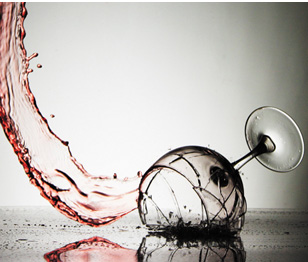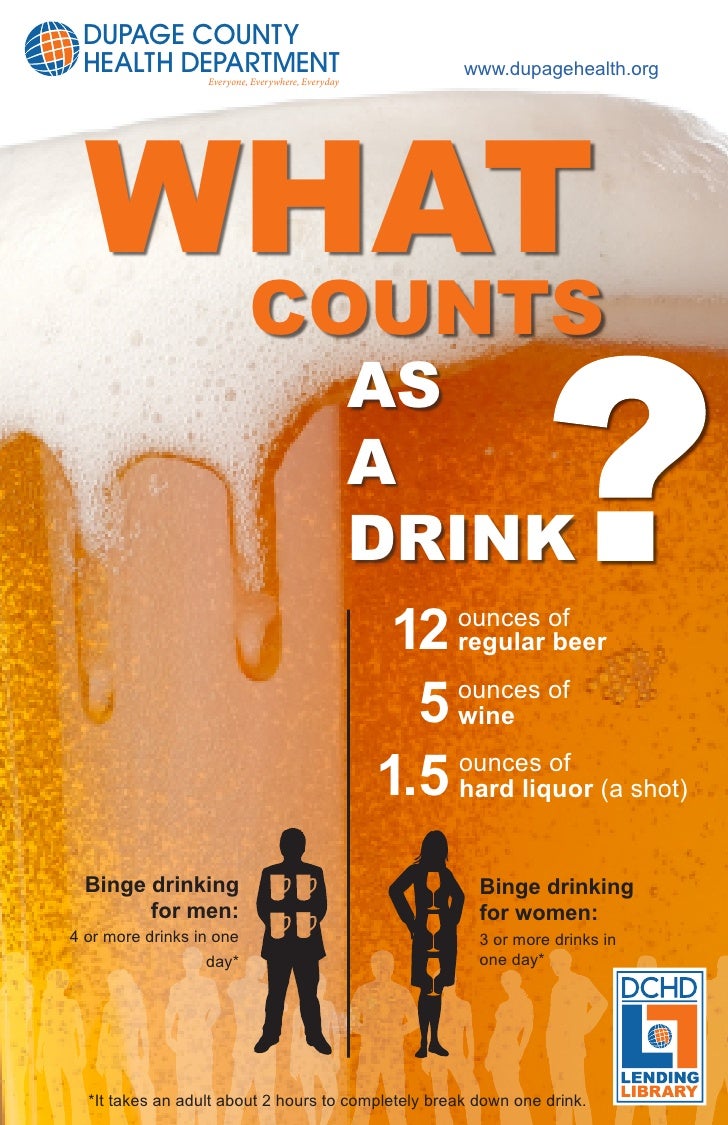The Course to Addiction: Phases of Alcohol addiction
Moderate drinking isn't a cause for worry in most grownups. As soon as alcohol consumption gets out of control, you may be on an unsafe journey to addiction.
The National Institute on Alcohol Abuse and Alcoholism (NIAA) estimates that 18 million Americans have alcohol use disorders. Alcohol addiction isn't really fabricated overnight. It emanates out of extended misuse of alcohol.
Knowing the signs and symptoms of each phase can help you in looking for assistance before your issue turns into dependency and alcohol addiction.
Phase # 1: Occasional Abuse and Binge Drinking
The first stage of alcohol addiction is a basic experimentation with alcohol. These drinkers may be brand-new to various types of alcohol and are likely to demonstrate their limits. This is a typical stage found in young adults.
These consumers will also regularly engage in binge drinking. While they might not consume alcohol on a regular basis, they ingest exceptionally large quantities of alcohol at once. Most addiction specialists categorize binge drinking as:
males who consume five or more alcoholic beverages within two hours
females who drink 4 or more drinks within 2 hours
Numerous binge drinkers surpass this quantity. This is especially undeniable for teens who go to high school parties. You might think binge drinking is safe if you just do it once in a while, however this couldn't be less true.
Consuming huge volumes of alcohol at once is unsafe, and can even result in coma or death. You may become dependent on the feeling and find that these episodes increase in frequency.
Phase # 2: Increased Drinking
Consumers leave the experimental stage as soon as their alcohol intake becomes more frequent. Instead of just consuming at parties once in a while, you might find yourself consuming every weekend.
Enhanced alcohol consumption can likewise lead to drinking for these reasons:
as an excuse to get together with good friends
to reduce stress
out of monotony
to combat despair or loneliness
Routine alcohol usage is various from moderate drinking. As enhanced drinking continues, you become more dependent on alcohol and are at danger of developing alcoholism.
Phase # 3: Problem Drinking
Frequent, unrestrained alcohol abuse ultimately leads to alcoholism. While any kind of alcohol abuse is problematic, the term "problem consumer" describes somebody who starts experiencing the effects of their routine.

You might end up symptoms of an alcoholic being more depressed, nervous, or start losing sleep. You may start to feel ill from heavy drinking, nevertheless enjoy its effects excessive to care. Lots of drinkers at this stage are also more likely to drive and drink or experience legal difficulties.
There are likewise particular social modifications associated with problem drinking. These consist of:

relationship issues
decreased social activity because of irregular behavior
sudden change in buddies
trouble conversing with strangers
Phase # 4: Alcohol Dependence
Alcohol addiction has 2 facets: dependency and addiction. It's possible for an alcoholic to be depending on alcohol, however not yet addicted to drinking.
Dependence types after living with an alcoholic the alcoholism stage. At this point, you have an attachment to alcohol that has actually taken over your regular routine. You're aware of the negative results, however no longer have control over your alcohol consumption.
Alcohol dependence also suggests that you have established a tolerance to drinking. As a result, you might have to consume bigger amounts to obtain "buzzed" or drunk. Increased drinking has more destructive results on the body.
Another characteristic of dependency is withdrawal. As you sober up, you might feel undesirable symptoms like:
nausea (not related to a hangover).
body tremors.
sweating.
serious impatience.
Stage # 5: Addiction and Alcoholism.
The final stage of http://www.aacap.org/AACAP/Families_and_Youth/Glossary_of_Symptoms_and_Illnesses/Alcohol_and_Drug_Abuse.aspx alcohol addiction is addiction. You not wish to just drink for satisfaction at this phase. Alcohol addiction is characterized by a physical and a psychological have to drink.
Alcoholics physically crave the drug and are often heartbroken till they start drinking once more. Alcoholics might also be addicted to drugs too.
Uncontrollable behaviors are prominent in addiction, and alcoholics frequently consume whenever and anywhere they desire.
The Outlook.
One of the greatest interested in dangerous drinkers is when they don't believe they have a problem. Any stage of alcohol addiction is problematic. Moderate drinking is the just safe method to consume alcohol, but drinking in general isn't really safe for everybody.
Recognizing issues with alcohol early can help prevent dependence and addiction. Medical treatment may be essential to detox the body of alcohol and to acquire a fresh start. Since many alcoholics withstand mental issues, individual or group treatment might assist in overcoming addiction.
The deeper into the stages of alcoholism you go into, the harder it is to quit drinking. Long-lasting risks of heavy drinking include:.
liver damage.
heart disease.
brain damage.
poor nutrition.
mental health conditions (including increased danger of suicide).
If you believe you may have a drinking issue, talk to your doctor.
The National Institute on Alcohol Abuse and Alcoholism estimates that 18 million Americans have alcohol conditions. Routine alcohol usage is various from moderate drinking. As enhanced drinking continues, you become more dependent on alcohol and are at danger of establishing alcoholism.
Alcohol dependence likewise indicates that you have actually developed a tolerance to drinking. Moderate drinking is the only safe way to take in alcohol, but drinking in basic really isn't safe for everybody.
The National Institute on Alcohol Abuse and Alcoholism (NIAA) estimates that 18 million Americans have alcohol use disorders. Alcohol addiction isn't really fabricated overnight. It emanates out of extended misuse of alcohol.
Knowing the signs and symptoms of each phase can help you in looking for assistance before your issue turns into dependency and alcohol addiction.
Phase # 1: Occasional Abuse and Binge Drinking
The first stage of alcohol addiction is a basic experimentation with alcohol. These drinkers may be brand-new to various types of alcohol and are likely to demonstrate their limits. This is a typical stage found in young adults.
These consumers will also regularly engage in binge drinking. While they might not consume alcohol on a regular basis, they ingest exceptionally large quantities of alcohol at once. Most addiction specialists categorize binge drinking as:
males who consume five or more alcoholic beverages within two hours
females who drink 4 or more drinks within 2 hours
Numerous binge drinkers surpass this quantity. This is especially undeniable for teens who go to high school parties. You might think binge drinking is safe if you just do it once in a while, however this couldn't be less true.
Consuming huge volumes of alcohol at once is unsafe, and can even result in coma or death. You may become dependent on the feeling and find that these episodes increase in frequency.
Phase # 2: Increased Drinking
Consumers leave the experimental stage as soon as their alcohol intake becomes more frequent. Instead of just consuming at parties once in a while, you might find yourself consuming every weekend.
Enhanced alcohol consumption can likewise lead to drinking for these reasons:
as an excuse to get together with good friends
to reduce stress
out of monotony
to combat despair or loneliness
Routine alcohol usage is various from moderate drinking. As enhanced drinking continues, you become more dependent on alcohol and are at danger of developing alcoholism.
Phase # 3: Problem Drinking
Frequent, unrestrained alcohol abuse ultimately leads to alcoholism. While any kind of alcohol abuse is problematic, the term "problem consumer" describes somebody who starts experiencing the effects of their routine.

You might end up symptoms of an alcoholic being more depressed, nervous, or start losing sleep. You may start to feel ill from heavy drinking, nevertheless enjoy its effects excessive to care. Lots of drinkers at this stage are also more likely to drive and drink or experience legal difficulties.
There are likewise particular social modifications associated with problem drinking. These consist of:

relationship issues
decreased social activity because of irregular behavior
sudden change in buddies
trouble conversing with strangers
Phase # 4: Alcohol Dependence
Alcohol addiction has 2 facets: dependency and addiction. It's possible for an alcoholic to be depending on alcohol, however not yet addicted to drinking.
Dependence types after living with an alcoholic the alcoholism stage. At this point, you have an attachment to alcohol that has actually taken over your regular routine. You're aware of the negative results, however no longer have control over your alcohol consumption.
Alcohol dependence also suggests that you have established a tolerance to drinking. As a result, you might have to consume bigger amounts to obtain "buzzed" or drunk. Increased drinking has more destructive results on the body.
Another characteristic of dependency is withdrawal. As you sober up, you might feel undesirable symptoms like:
nausea (not related to a hangover).
body tremors.
sweating.
serious impatience.
Stage # 5: Addiction and Alcoholism.
The final stage of http://www.aacap.org/AACAP/Families_and_Youth/Glossary_of_Symptoms_and_Illnesses/Alcohol_and_Drug_Abuse.aspx alcohol addiction is addiction. You not wish to just drink for satisfaction at this phase. Alcohol addiction is characterized by a physical and a psychological have to drink.
Alcoholics physically crave the drug and are often heartbroken till they start drinking once more. Alcoholics might also be addicted to drugs too.
Uncontrollable behaviors are prominent in addiction, and alcoholics frequently consume whenever and anywhere they desire.
The Outlook.
One of the greatest interested in dangerous drinkers is when they don't believe they have a problem. Any stage of alcohol addiction is problematic. Moderate drinking is the just safe method to consume alcohol, but drinking in general isn't really safe for everybody.
Recognizing issues with alcohol early can help prevent dependence and addiction. Medical treatment may be essential to detox the body of alcohol and to acquire a fresh start. Since many alcoholics withstand mental issues, individual or group treatment might assist in overcoming addiction.
The deeper into the stages of alcoholism you go into, the harder it is to quit drinking. Long-lasting risks of heavy drinking include:.
liver damage.
heart disease.
brain damage.
poor nutrition.
mental health conditions (including increased danger of suicide).
If you believe you may have a drinking issue, talk to your doctor.
The National Institute on Alcohol Abuse and Alcoholism estimates that 18 million Americans have alcohol conditions. Routine alcohol usage is various from moderate drinking. As enhanced drinking continues, you become more dependent on alcohol and are at danger of establishing alcoholism.
Alcohol dependence likewise indicates that you have actually developed a tolerance to drinking. Moderate drinking is the only safe way to take in alcohol, but drinking in basic really isn't safe for everybody.